488 Rules for Life
by Kitty Flanagan
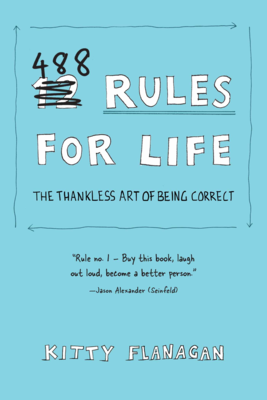
That's a half funny and half option book with a few useful bits in between. I particularly enjoyed the audiobook narration by the author. I think the rules book genre has a big potential if the rules are useful. So if you know a similar book, send it my way.
This book would be a good gift to anybody or a good fit for a beach book.
Powerful
by Patty McCord
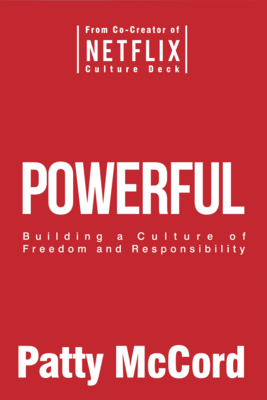
Powerful is a fairly short book (4 hours) which is a longer version of Culture Deck slides. The book is easy to read and very well structured.
Patty describes her work at Netflix as a head of HR. She explains why she made certain choices. Patty provides good reasoning and practical advice. I mostly agree with her points. Most companies, in my experience, are suffering from excessive positivity and family vibes which hurt productivity. Instead of firing underperformers, they are transferred to another team. I'm yet to see a company which has a culture of timely constructive feedback. That's some of the points that Patty touches on.
However it's important to remember the context surrounding her experience. Netflix is a public company which grew at a stunning rate. The challenges they faced are quite different from what any small or large company would. So her advice should be taken with caution.
I'd recommend this book to managers and higher (like cofounders and HR). Just like Nine Lies About Work book, it will help you question industry status quo and think of alternatives.
Running the Room
by Tom Bennett
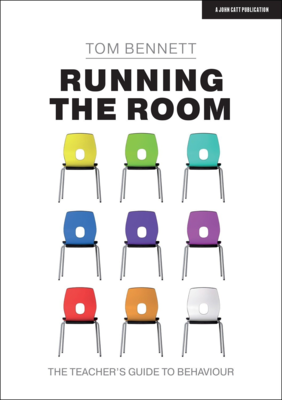
This book is about the classroom but I found half of it is relevant for my daily work when dealing with adults. The main idea is that we need to teach good behaviour explicitly. I fully agree with the author. Social and work rules and norms are usually implicit and unclear. In multicultural society it's even harder as people dilute the norms with their cultural flavour.
The book reminded me of The Art of Gathering. Especially the part of setting explicit rules, protecting the group from bad behaviour and utilising your power.
Some chapters touch on habits buliding. They only cover the surface, and if you want to go deeper, have a look at Atomic Habits book.
I found the book very repetitive with poorly set emphasis in text. A bit disappointing to see that from a teacher. I guess teaching is not writing.
Overall it's a good read and worth it if you want to understand and deal with people's behaviour, good or bad.
The Way of the Superior Man
by David Deida
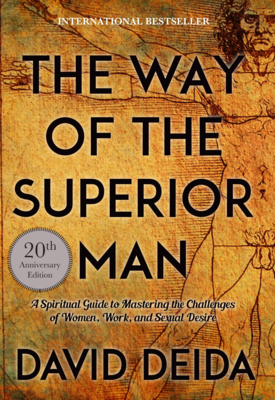
This book was recommended by my friend who said it changed her life. The book offers few models of what men and women are, and what roles they should play in life and relationships. The author doesn't bother explaining or backing up any of it, so as a reader you can only take it at face value.
Author uses sexual language a lot. For example "penetrate" is used 31 times. The book is written in a beautiful metaphorical language which is open to different interpretations. I'm yet to understand what "penetrate the world" means.
Like a popular saying "All models are wrong, but some are useful", some of the book's models can be useful. Some definitely resonated with my experience. The problem is the offered models are on a high level. Think of them as symptoms. It's easy to observe the symptoms and think you understand a disease. However it's not. If you don't know what a bacteria is, you will think "bad spirits" are the cause.
I think advice like "men should do X" with a "just because" reason is dangerous even if it's correct. For each one valid model, there are ten invalid ones.
Overall it's an interesting read. I'd like this book to be rewritten with more substance.
The Five Dysfunctions of a Team
by Patrick Lencioni
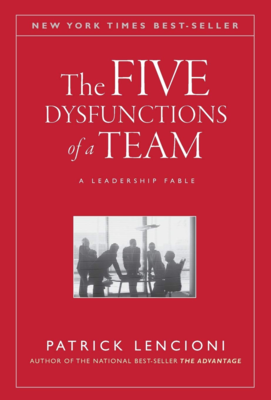
I wish all books were like this one. Great story, practical, short and to the point. I love it. It's a must read for all people who work in a team or in other words all people.
In my experience most teams are all about a positive vibe and avoid any conflict even if it's essential for better results. As a result people don't understand that the lack of conflict is detrimental to work. If you don't know what I mean by "conflict", great, read the book.
I'm a bit surprised that it's only now that the book came on my radar, it should be a part of an essentials pack for everybody.
Modern Software Engineering
by David Farley
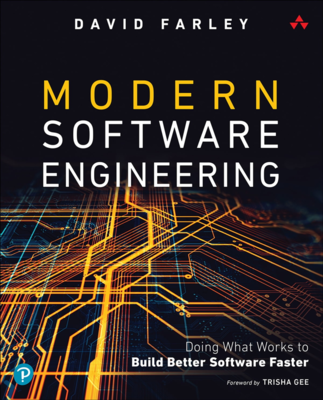
It's a really good book that talks about software development fundumentals. It didn't change my mind, as I already knew most of it. However I found it useful to reiterate the argument why those fundumentals are important. I did find the book a bit repetitive at times, but not enough to be distracting.
The book is well structured and easy to follow. The book suggest two main parts which we should optimise for: learning and complexity.
“Optimize for Learning,” looks at how we organize our work to allow us to make progress in small steps. How do we evaluate if we are making good progress or merely creating tomorrow’s legacy system today?
“Optimize for Managing Complexity,” explores the principles and techniques necessary for managing complexity. This explores each of these principles in more depth and their meaning and applicability in the creation of high-quality software, whatever its nature.
The book also covers important topics like: What is software engineering? Is it a craft or engineering? How to measure software? How to evaluate external tools? and more.
I would recommend this book to all software devevelopers, senior or junior.
Basic Economics
by Thomas Sowell
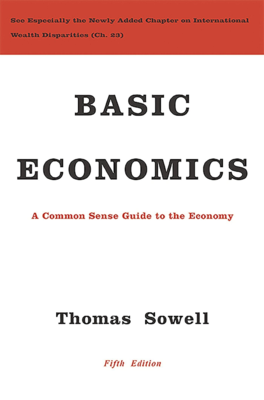
What a book! As dry as it sounds, this book is an infinite source of knowledge. I think this book should be studied by everybody at school. Only now after learning more about economics I understand how clueless most people are, including politicians. If only all of us were educated on that topic, we'd stop creating so much damage while we are trying to improve things.
This book changed my opinion multiple times. It's very extensive and provides good arguments. I only wish it was a bit shorter to appeal to more people. As much as I loved every single chapter I was over it closer to the end. It's very comprehensive, which is another beauty of it. Read it.
The High 5 Habit
by Mel Robbins
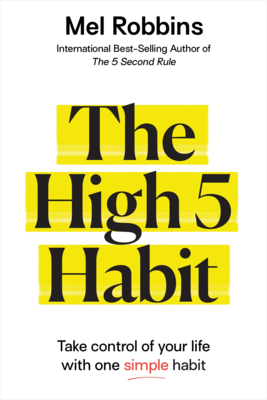
This is a very easy to consume book. It's inspirational and story driven. The book talks about Growth mindset without naming it like that. It encourages to love yourself and put yourself first. It's a simple but very enabling idea.
There is little practical advice to make it somewhat useful. There are few tips on building habits, but for a deeper understanding I'd recommend Atomic Habits book. For the deeper dive into mindsets have a look at Mindset book.
I'd recommend this book if you'd like more confidence, motivation and inspiration. Mel narrates the audiobook herself. She definitely brings a lot of energy and emotions into it. I like this trend when authors narrate their own books.
A More Beautiful Question
by Warren Berger
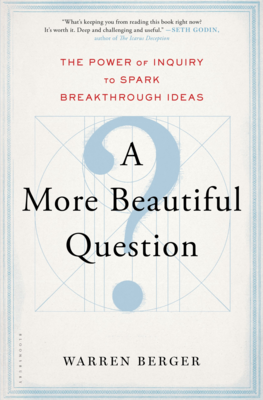
It's an interesting book. I like the premise and don't like the delivery. The main suggestion is to start questioning the world as a way to creative thinking. The author doesn't offer much himself, but has a couple of good references to other people's work.
The majority of the book is a collection of cherry picked success stories from history. It's a typical over simplification of reality twisted to fit the book's narative. It's fun and inspiring to read but has no practical value.
How Charts Lie
by Alberto Cairo
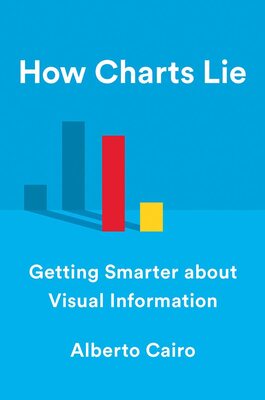
This is an insightful read. I've built many charts and graphs myself in the past and rate my chart skills above a majority. However I still learned something new.
I have two highlights. Any chart is a simplification of reality, and it reveals as much as it hides. You can present any information in both positive and negative light on the chart. Which leads to the second highlight: a chart shows only what it shows and therefore, we must strive not to read too much into it.
The book is short and easy to read as it has a lot of graphs to look at. I'd recommend it to everybody as it gives basic graphical literacy or graphicacy how the author puts it.
Everything Everywhere All at Once (2022)
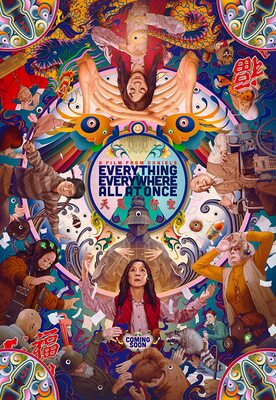
This is another amazing piece of art that I saw this week. Movies like this demonstrate how skills are more important than budget. The movie has an interesting story, great acting, visuals, intrigue and lessons.
After watching the movie, I recommend to watch analysis of Waymond Wang.
What We Do in the Shadows (2014)
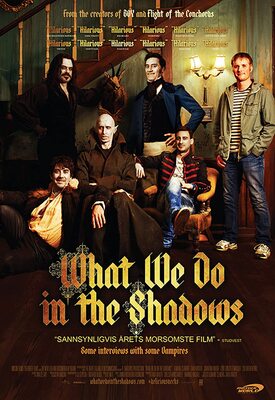
This is a low budget and not very popular movie from one of my favourite directors Taika Waititi. I love how creative, unusual and funny this movie is.
Preventing the Collapse of Civilization
by Jonathan Blow
So turns out I'm not the only one who thinks that and see no progress in software.
Purple Cow: Transform Your Business by Being Remarkable
by Seth Godin
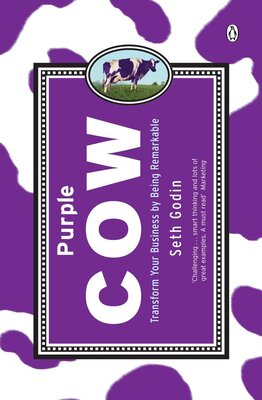
The audiobook is 3 hours long, which is relatively short, and yet I think it could be 30 minutes. The main idea of the book - (as a business) stand out from the crowd. Give people a reason to talk about you and as a result they'll do free marketing for you. That's it.
The book is a little inspirational. It has many examples and is easy to listen to.
The Art of War
by Sun Tzu
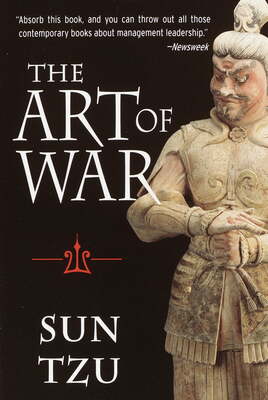
I found this old book quite interesting as it dives deep into combat, human nature and social structure. There are multiple additions, extensions and explanations which I didn't touch, but might in the future. Personally I'm interested in the ideas, but since it's so old historic knowledge is required for the full understanding.
The Code of the Extraordinary Mind
by Vishen Lakhiani
10 Unconventional Laws to Redefine Your Life and Succeed On Your Own Terms
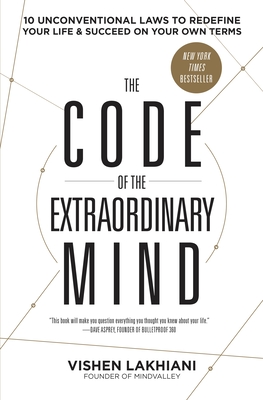
It's amazing how this book is good and off-putting at the same time. This book is for people who want to take control of their lives, live true to themselves and be happy. I really like the author's ideas and suggestions. They are easy to understand and practical.
If not the endless self promotion and name dropping littered all over the book, that book would go to my best list. The book would be much better if those parts were simply removed.
I recommend this book as long as you can focus on the good parts.
Models: Attract Women Through Honesty
by Mark Manson
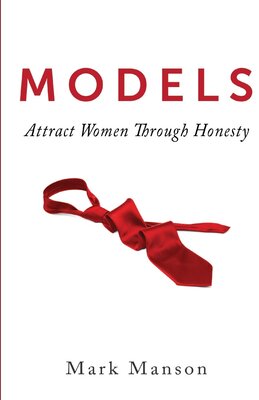
This is the first book by Mark Manson which gave him an initial boost of popularity. You probably know Mark by his second book "The Subtle Art of Not Giving a Fuck".
The book tells how to attract women. To summarise the book: be good looking, smart, interesting, communicate well, confident, flirtatious and more. Book's advice is to be everything, but I bet you already knew that. So yeah, not that useful. The author provides some practical advice but it's quite shallow.
Models book presents good intentions on how to be an attractive partner. I like that the book critiques the famous pickup artist culture popularised by "The Game" book. However the book is still about pickup games but only with a slightly different mindset.
I found the book useful to read about other dating experiences and like few ideas.
In short the book had great potential but the author failed to execute on it leaving it as an average read.
Tools of Titans
by Tim Ferriss
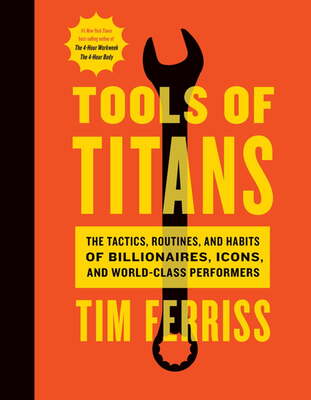
This book is a compilation of interviews of famous people. Overall the book expanded my knowledge on a variety of topics. I like the small chapters and found it great for short read sessions.
The book is mostly an aggregation of raw answers and offers very little on top of that. If you are interested in interviews, I would recommend it in audiobook, as it's long and has low content density.
Thinking in Systems
by Donella H. Meadows
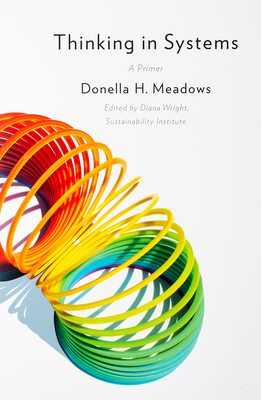
I wanted to read this book for a few years now. I'm glad this book didn't disappoint. The book gives a solid foundation for Systems Thinking. This is a must know concept for everybody. System Thinking applies to absolutely everything. There is nothing revolutionary, but it's important to have the awareness of the concept and basic understanding. Personally, until now I couldn't articulate my thoughts about cause and effect well.
The book is just right. It has good structure, is not too long and not too short, and has plenty of real examples to understand the concepts. It's rare to see such well written book.
The book has many diagrams, and I wouldn't recommend it in audiobook format.
How to live
by Derek Sivers
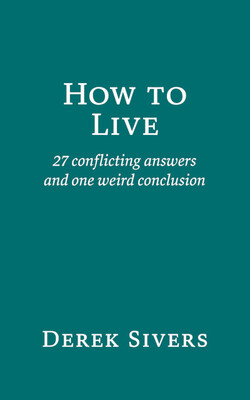
This is a short book based on author's opinon, which mostly aligns with mine. I found that many principles from the books are based on Stoicism philosophy.
The book contradicts itself few times, but I still had a good time listening to it. I found it a bit inspirational to be reminded of those things.
Staff Engineer
by Will Larson
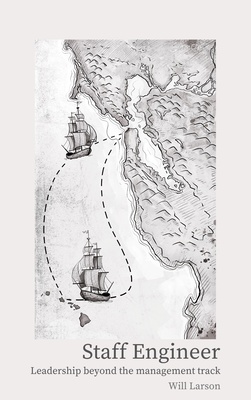
Software engineer titles are a mess. Senior Software Engineer title got deflated over the years. It's not uncommon to see people with 3 years of experience with it. As a result technical career path becomes problematic as there is none. As an obvious solution new titles started appearing. Company started to create their own titles, which doesn't tranfer or communicate much outside the company. The most common title above the Senior in Australia is Lead Developer, but that's pretty much it.
Recently I've discovered a new title taxonomy called Staff Engineering. It is still loosely defined. This book is based on aggregation of opinions and defines the next technical levels above Senior.
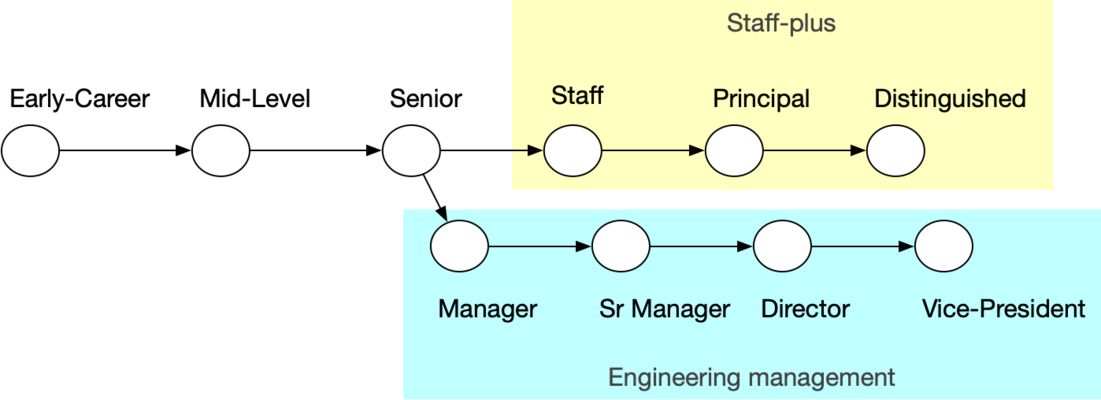
The book has lower quality than I'd expect from books. It feels like a collection of blog posts. However it's still useful to read to get the authors opinion.
Ray Dalio Youtube
I found Ray Dalio youtube channel has interesting high quality videos which are worth watching for everybody.
The Art of Gathering
by Priya Parker
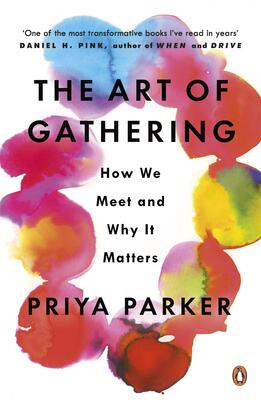
You probably wouldn't think much what there is to a gathering. This book goes into details what makes gatherings good or bad. The book is not prescriptive and gives a good high level guide to different aspects.
I think everybody could benefit from this book, but probably not many people will find it interesting. I've read this book twice in a row, as the second round was for the book club.
Edgar Wright
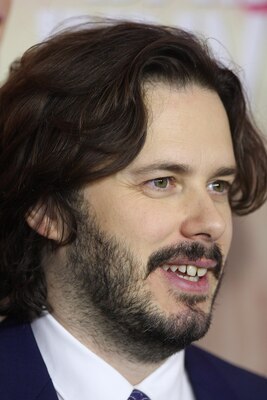
Edgar is a talented filmmaker, whose work I admire. I saw his movie Baby Driver in the past and it didn't resonate with me. It's fun and entertaining but I didn't think much of it. It's only after I've learnt how to watch his work that it finally clicked. I opened a new world of art to myself. Unless you know what you are looking for you will miss it as well.
You can start with
One of the biggest discoveries last year was the realisation that we need to educate ourselves to better understand art forms like movies.
I can recommend these two youtube channels to start learning about movies:
My favourite Edgar's movies:
- Shaun of the Dead (2004)
- Hot Fuzz (2007)
- Scott Pilgrim vs. the World (2010)
- The World's End (2013)
- Baby Driver (2017)
- Last night in Soho (2021)
To give you an example this is a good analysis of the movie and how subtle the details are (Spoilers).
Jojo Rabbit (2019)
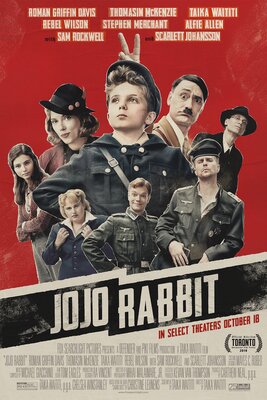
This is a great satire movie. It's warm, funny and educational. And yet that's not all. It has many famous actors, great acting and beautiful style. It's hard not to love it. It reminded me of Life Is Beautiful (1997) movie.
How to not die alone
by Logan Ury
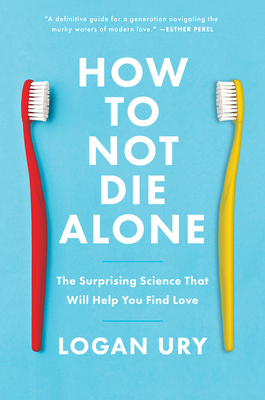
I enjoyed this book. It's about preparing for dating, dating and growing relationships. The content is very broad and doesn't have much depth. It has just enough to make a point, but if you are looking for strong evidence to back it up, it's not for you.
This book reminded me of the Defining Decade book. Both of them are very practical and easy to read.
If you haven't found a long-term partner yet, I think you'll also find this book interesting and it might help you with dating.
Another review on youtube.
1917 (2019)
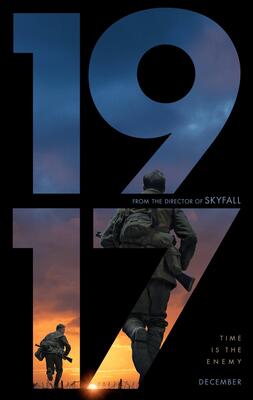
OMG, the cinematography in this movie is just a masterpiece. Such movies should be displayed in the museums to admire the work and the beauty.
The New Manhood
by Steve Biddulph
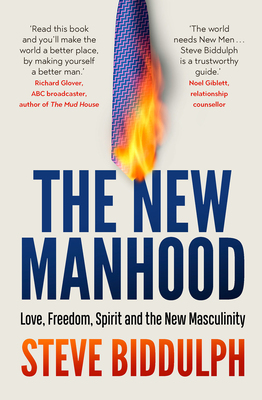
Wow, I didn't expect this book to be that good. I think manhood is one of the most important topics and yet I rarely see it discussed. The book is very well structured and easy to follow. The author walks you through life stages of being a son to maturing, being a father and living a fulfilling life. It covers a bit of everything: emotions, relationships, love and meaning.
While the book is written by an Australian psychologist, it resonated with my experience growing up in a different country and culture. It's scary how universal the conclusions are.
I'd say this book is a must read. While the book mostly talks from the men's perspective I think it will be valuable for all women too. I want to find a similar book but the women's version to better understand them.
Team Topologies
by Matthew Skelton and Manuel Pais
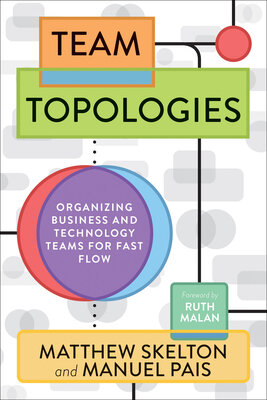
Finally a good book on team structure. I really enjoyed this book. It's very practical and provides a deep understanding of choices. Recent trends that more collaboration is better or all teams are the same are a big delusion. In fact sometimes less collaboration yields better results. But the question is which is which? The book doesn't give you a solution, but rather gives you tools and understanding to decide for yourself.
I listened to the audiobook, and while it was insightful, the book has a lot of diagrams, so I'll be reading it. I think this book is worth reading when you have at least 15 people across all teams.
While the book talks about tech teams, I'm curious how well these concepts could work on the organisational level across departments. 🤔
Update 13th Nov 2021: finished reading the book. Yeap, it's still very good. I definitely missed some parts in the audiobook as there are many images related to the discussion.
The Alphabet of Emotions (Rus) / Азбука Эмоций
by Natalia Kedrova
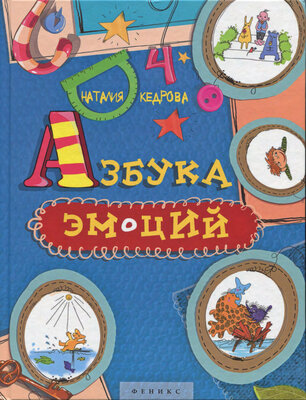
I had fun reading this small Russian book. It talks about the most common emotions and how to interpret them.
The book has colorful design and illustrations, which made me think that most books are visually boring.
I would recommend it to everybody if you can read Russian.
A Guide to the Good Life: The Ancient Art of Stoic Joy
by William B. Irvine

This book is my first introduction to Stoicism. I would say the book is well written, but I didn't like the audiobook's narrator on Audible. It was too monotone for me.
Stoicism itself is an interesting philosophy and I would recommend you to look into it if you still haven't.
Designing Data-Intensive Applications
by Martin Kleppmann
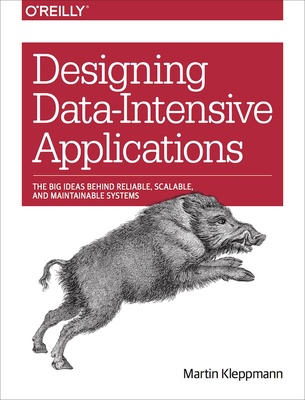
Great book. Data-Intensive Applications topic is new to me. This book served as a good introduction. It's very detailed and comprehensive. It slowly walks you step by step through different topics. The book gets overwhelming by the amount of new concepts but the author does a good job explaining it.
Unfortunately there is little knowledge I can apply to my daily work. The biggest highlight for me: distributed systems are very hard and there is no single solution, but rather the solution with the best set of compromises you can tolerate.
After reading the book, I became a bigger fan of single-leader database replication. It offers the best balance of cost, performance and complexity.
I would recommend this book to people who think they need distributed storage, because "SQL doesn't scale". Also it's a good read for senior devs who want to upskill and get an introduction to distributed systems.
The Manager's Handbook
by Alex MacCaw

I love this book because it's not written to be sold, but rather intended as a capture of the best experience. Until recently it was only available online.
The book truly stands for its title. It's a handbook. It's well structured, comprehensive and very dense. I expect to revisit it very often.
I'd like to recommend this book to everybody, including non-managers. The book is free which simplifies the distribution.
Managers can use it as a handbook. Others will benefit from a better understanding of their manager and improve at their job, as the discussed topics are relevant to all job titles. In fact, everybody will be better off if we upskill on topics of personal productivity, working as a team, goals, information sharing, conflict resolution, and consciousness.
Team of Teams
by Stanley McChrystal
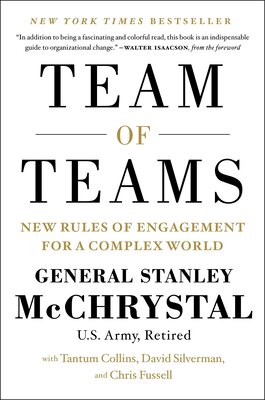
This book is highly rated and I can see why. It tells a great story from life experience. The story is engaging and exciting.
However if you want to get more than a story that's not a book for you. The book lacks research and analysis. The advice is delivered in the form: "it worked for us, so it must be great and you should do the same". While such experience is great to share, it carries little value because it's not transferable in the abstract form.
Dare to lead
by Brene Brown
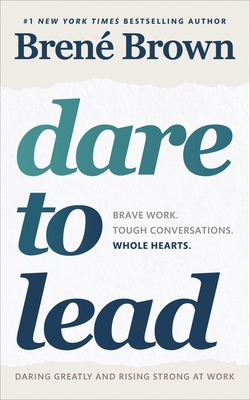
This is one of the harder reads I had. The topic and content are great. However it seems, I’m allergic to the way it is delivered. It took me 3 attempts over two years to finish the book.
The book highlights the importance of acknowledging our emotional side at work. I like that it recommends defining your values and enforcing them through hard conversations.
I recommend this book if you can finish it. If it's also hard to swallow, try an audiobook.
Start with Why
by Simon Sinek
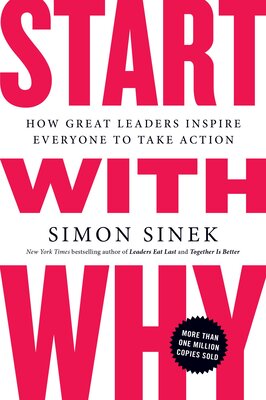
I was worried that I’m not critical enough when I’m rating books as I usually give high ratings to books I read. I’m glad to know that’s not the case. This book is terrible. It’s the worst I’ve seen in a while. I enjoy Simon’s inspirational speeches and I’m fully on board with the importance of “why” topic. And yet when combined the book has nothing to offer. The reasoning is flawed and the ideas are very repetitive. It is not inspirational, nor practical, nor insightful.
Nine Lies About Work: A Freethinking Leader’s Guide to the Real World
by Marcus Buckingha, Mashley Goodall
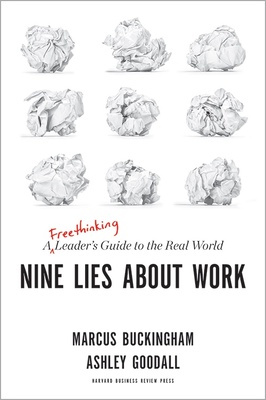
That's a pretty interesting book about debunking the status quo. I generally agree with the author that the “lies” as the status quo make little sense. However, I’m not fully sold yet that the “truths” is the right solution. I felt the arguments were very weak at times. Also, the author gives weird definitions to the problems so later he can present his solution, which are only relevant in such setup.
Nevertheless, I enjoyed the argument as it got me thinking. The book is easy to read. I would recommend it if you want to challenge your beliefs with the new facts.
Maybe You Should Talk to Someone
by Lori Gottlieb
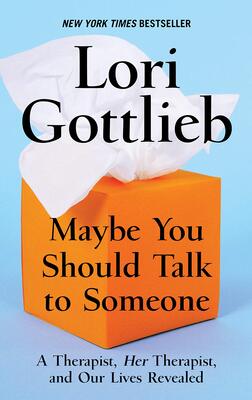
Wow, just wow. I love this book. It's amazingly touching and absorbing. I started reading it, but soon realised it's perfect for audiobook. The chapters are so well written and delivered, it got me to tears multiple times. This book is like a good friendship or movie series, you connect with the characters like they are your best friends. After it's over it makes you sad you can't follow them any more.
Extra shout-out to Brittany Pressley who narrated the audiobook. She did an amazing job conveying different characters and their emotions.
I highly recommend this book to everybody.
Everyone Communicates, Few Connect
by John C. Maxwell
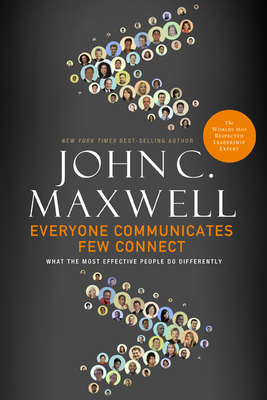
I listened to this audiobook and I should say it would be better to read it instead. The book is very well structured. The author provides a good breakdown of how to connect with people when communicatating.
The book doesn't offer anything groundbreaking: be valuable to others, puts others' interestes first, be interesting, be inspiring, speak clearly, be authentic. I feel the advice is too generic and theoretical. I might read it in the future though.